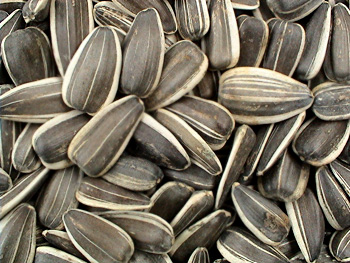The various functions of common vitamins, their deficiency symptoms,
natural sources, daily requirements and their therapeutic uses are
discussed in brief as follows:
Vitamin A
Known as anti-opathalmic, vitamin A is essential for growth and vitality. It builds up resistance to respiratory and other infections and works mainly on the eyes, lungs, stomach and intestines. It prevents eye diseases and plays a vital role in nourishing the skin and hair. It helps to prevent premature ageing, increases life expectancy and extends youthfulness. The main sources of this vitamin are fish liver oil, liver, whole milk, curds, pure ghee, butter, cheese, cream and egg yolk, green leafy and certain yellow root vegetables such as spinach, lettuce, turnip, carrot, cabbage and tomato and ripe fruits such as prunes, mangoes, papaya, apricots, peaches, almonds and other dry fruits. A prolonged deficiency of vitamin A may result in inflammation of the eyes, poor vision frequent colds, night blindness and increased susceptibility to infections, lack of appetite and vigour, defective teeth and gums and skin disorders.
Vitamin A
Known as anti-opathalmic, vitamin A is essential for growth and vitality. It builds up resistance to respiratory and other infections and works mainly on the eyes, lungs, stomach and intestines. It prevents eye diseases and plays a vital role in nourishing the skin and hair. It helps to prevent premature ageing, increases life expectancy and extends youthfulness. The main sources of this vitamin are fish liver oil, liver, whole milk, curds, pure ghee, butter, cheese, cream and egg yolk, green leafy and certain yellow root vegetables such as spinach, lettuce, turnip, carrot, cabbage and tomato and ripe fruits such as prunes, mangoes, papaya, apricots, peaches, almonds and other dry fruits. A prolonged deficiency of vitamin A may result in inflammation of the eyes, poor vision frequent colds, night blindness and increased susceptibility to infections, lack of appetite and vigour, defective teeth and gums and skin disorders.
 There are about two grams of zinc in the body where it is extremely
concentrated in the eyes, nails, hair, skin and testes. Zinc is a
precious mineral. It is needed for healthy skin and hair, proper healing
of wounds, successful pregnancies and male virility. It plays a vital
role in guarding against diseases and infection. The main dietary
sources of zinc are beans, meat, whole grains, milk, liver, nuts, and
seeds. Deficiency can result in weight loss, skin diseases, and loss of
hair, poor appetite, Diarrhoea and frequent infection. Those suffering
from rheumatoid arthritis may have a zinc deficit.
There are about two grams of zinc in the body where it is extremely
concentrated in the eyes, nails, hair, skin and testes. Zinc is a
precious mineral. It is needed for healthy skin and hair, proper healing
of wounds, successful pregnancies and male virility. It plays a vital
role in guarding against diseases and infection. The main dietary
sources of zinc are beans, meat, whole grains, milk, liver, nuts, and
seeds. Deficiency can result in weight loss, skin diseases, and loss of
hair, poor appetite, Diarrhoea and frequent infection. Those suffering
from rheumatoid arthritis may have a zinc deficit.